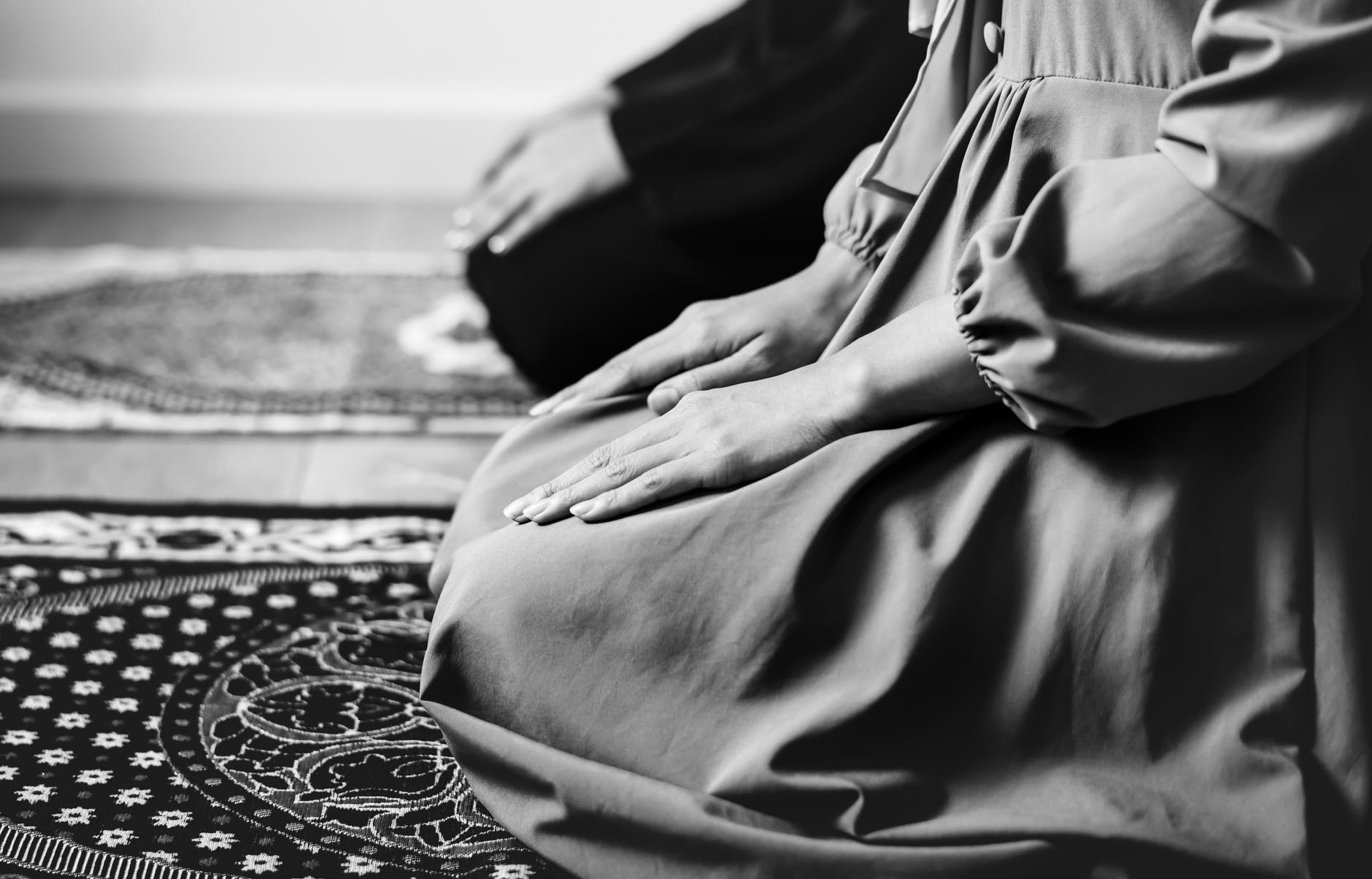How can we, as Muslims not partaking in Hajj (pilgrimage) itself, strive to make the best of these most blessed 10 days?
1. Fasting, especially on the Day of ‘Arafah
Abu Hafsah, may Allah be pleased with him, reported that the Prophet, Peace Be Upon him, said:
Fasting on the Day of ‘Arafah absolves the sins for two years: the previous year and the coming year, and fasting on ‘Ashura, (the tenth day of Muharram) atones for the sins of previous years.”
2. Reflecting upon the Prophet Ibrahim legacy
Hajj (pilgrimage), a pillar of Islam, and Eid al Adha, a celebration, have been left a legacy by the prophet Ibrahim Peace Be Upon Him. Let’s take a moment to think about his strength of character and faith; how he challenged the status quo in his time when everyone was worshipping idols he objected to and he reaffirmed Towhead (the Oneness of God).
3. Takbeer, Tahleel, Tahmeed, Tasbeeh

Photo by rawpixel.com on Pexels.com
The Prophet Muhammad ﷺ (Peace Be Upon Him) said:
“There are no days that are greater before Allah in which Good Deeds are more beloved to Him, than these ten days, so recite a great deal of tahleel, takbeer and tahmeed during them.”
Narrated by Ahmad, 7/224.
Takbeer is to proclaim the greatness of Allah by saying Allahu Akbar (Allah is Great!)
Tahleel is to declare the oneness of Allah by saying La ilaaha il-lal-laah (There is none worthy of worship except Allah)
Tahmeed is to praise Allah by saying Alhamdulillah (All Praise belongs to Allah)
Tasbeeh is to glorify Allah by saying SubhanAllah (Glory be to Allah)
Abu Hurairah (May Allah be pleased with him) reported: The Messenger of Allah (PBUH) said, “There are two statements that are light for the tongue to remember, heavy in the Scales and are dear to the Merciful: `Subhan-Allahi wa bihamdihi, Subhan-Allahil-Azhim [Glory be to Allah and His is the praise, (and) Allah, the Greatest is free from imperfection)’.
Al-Bukhari and Muslim.
SubhanAllahi wa bi Hamidihi (Glory and praise is to Allah)
“Whoever recites this (SubhanAllahi wa bi hamidihi) one hundred times in the morning and in the evening will not be surpassed on the Day of Resurrection by anyone having done better than this except for someone who had recited it more. ”
Al-Bukhari 4/2071.
SubhaanAllahi-l-Azhim (Glory is to Allah, the Great)
4. Creating a meaningful connection with the Quran and being consistant

Photo by abdulmeilk majed on Pexels.com
Start slowly but surely reading your Quran; mediating and learning from it. Try to read every day whenever you can, only a few verses at the beginning and then more; start with one verse then five, then ten after that try to finish one page, then five pages etc.
The main thing is to take the opportunity during these 10 blessed days to build a solid relationship, a connection between you and the Quran. The real success is to make it a habit for the rest of the year. Let’s see how much Quran we can read or learn during these blessed days – Bismillah.
5. Increasing spiritual knowledge
By reading hadith and sirat (biography) of the Prophet ﷺ.
6. Repenting to Allah
Read Astaghfirullah 100 times after waking up and 100 before going to bed.
7. Increasing the prayers
Do extra voluntary prayers and tahajjud prayer during nights.
8. Improving your character/manners (akhlaq)
Avoiding backbiting, slander, cursing and lying and be extra careful on the actions you do. On the Day of Qiyamah (Resurrection) nothing will me more weightier on balance than good character/manners.
Visiting relatives and call them. Take a moment to visit the sicks. Repair broken relationship and forgive whoever hurt you. Go forward, don’t spend too much energy thinking about the wrong that people have caused us. Life is too short, this is a time for moving on and looking to the future.
9. Making a lot of invocations.
For yourself and as well for your friends, family and everyone to benefit indeed Prophet Muhammad ﷺ said:
“None of you will believe until you love for your brother what you love for yourself.”
Narrated by Bukhari & Muslim
Making invocations is important in your prayers (and everyday life). It reinforces the link between you and Allah. Among other things, it elevates your prayer to a higher degree and it helps to increase serenity.
‘And when My servants ask you, [O Muhammad], concerning Me—indeed I am near. I respond to the invocation of every supplicant when he calls upon Me…’
Qur’an 2:186
10. Charity
Being generous with the people that are in need and giving Sadaqah (charity). This is an excellent opportunity to support projects around you and earn so much reward!
Oh Allah! Grant us the quality of the people of Jannah!
Allahuma Ameen
Hawazine Haouat

